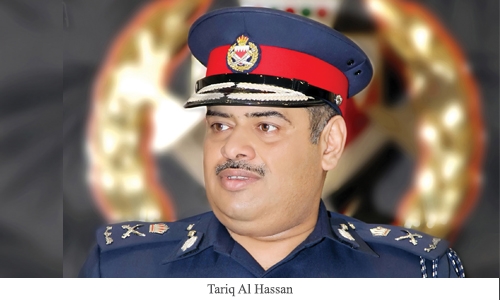Bahrain still facing threats from IS, Al Qaeda and Iran
Bahrain has recovered from the unrest that occurred five years ago during the months of February and March, 2011, a senior security official stated.
“Bahrain is slowly returning to stability five years after the unrest, but is still facing security threats from Iran-backed elements and militants linked to terrorist organisations such as the Islamic State and Al Qaeda,” stated Public Security Chief Major-General Tariq Al Hassan yesterday.
Speaking in an interview with Reuters, Al Hassan rejected the accusations made by rights groups of torture by security forces, affirming that Bahrain has set up several monitoring mechanisms to ensure police transparency.
“The protests in 2011 had been hijacked by extremists directed by Iran. Bahrain has faced terrorist attacks, acts of unrest and attacks in the past five years. Today, security is better and is under control. But this stability must be preserved because we are facing an assault from abroad, specifically from Iran,” the chief added.
Commenting on the continuous torture allegations made by human rights organisations, Al Hassan said, “Unfortunately, the issue of human rights had been misused by some organisations and by some States, and it is only just that they acknowledge what Bahrain had achieved in this field. This broken record about torture in prisons, I don’t know what this talk is about. Bahrain had set up several watchdogs to monitor police work to ensure transparency, appointed an ombudsman to investigate complaints of abuse and is working with prison authorities in Britain and Ireland to improve prison services.” “I see that the level of transparency that exists today, unfortunately, is being ignored by those who belong to human rights bodies, or some of them,” he added.
Human Rights Watch last November questioned Bahrain’s claims that it had ended torture in detention.
“All the available evidence supported the conclusion that these new institutions have not effectively tackled... a ‘culture of impunity’ among security forces,” said Joe Stork, Deputy Middle East Director.
Related Posts

